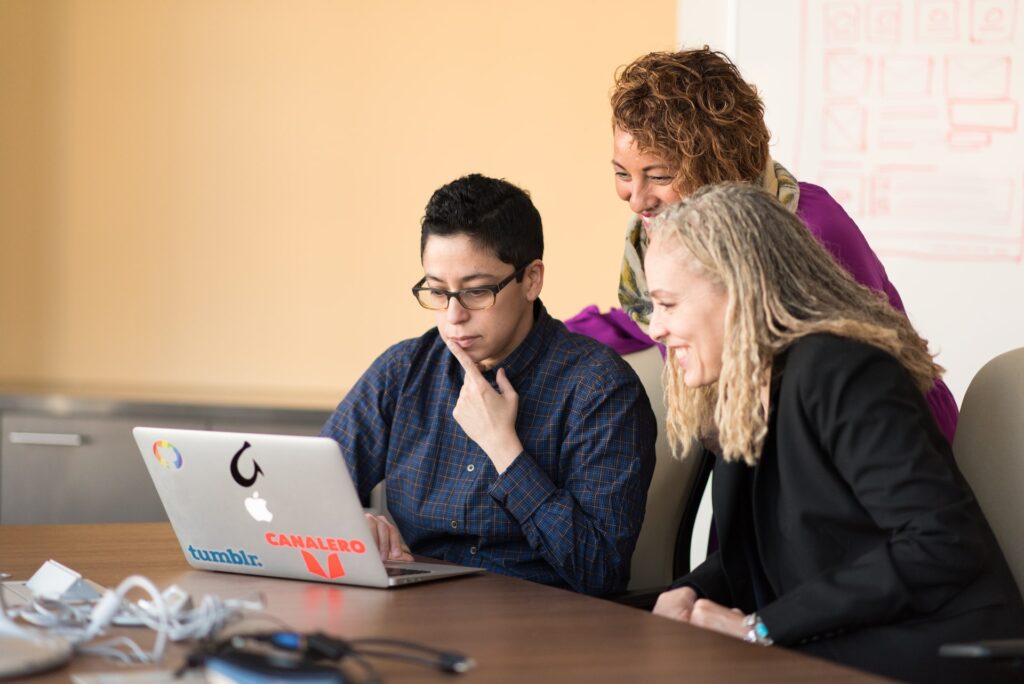Fostering diversity and inclusive participation in the water and sanitation workforce
Workplaces often reflect societal stereotypes, and the water and sanitation workforce is no exception. Women continue to be an underrepresented group. Research also shows that women are often under-represented in relevant government agencies handling water and sanitation, and in private enterprises. In water utilities, they comprise only 18 per cent of the sector’s paid workforce. Such statistics are jarring alongside the well-known facts that women and girls play a critical role in water-related tasks, possessing intimate knowledge of water resources, and issues of water quality and quantity. Moreover, they can experience systematic exclusion from sanitation access, along with people with disabilities and other marginalised groups.
Women (in all their diversity, including sexual and gender minorities and women with disabilities) experience barriers at each stage of their career cycle. They are also more likely to leave the water and sanitation workforce at a higher rate than men. Common reasons include discriminatory recruitment policies with a bias towards able-bodied men and inflexible work arrangements that conflict with care responsibilities. Further reasons include violence or harassment at work, unspoken responsibility put on women to take on the ‘emotional load’ for the team, discriminatory laws related to maternity leave, unequal wages and lack of basic facilities such as hygienic and menstrual friendly toilets. Most of these are applicable to sexual and gender minorities as well, who may additionally face discrimination in relation to gender-specific dress codes, access to toilets and lack of procedures around gender transitioning.
The situation isn’t entirely grim! There are many initiatives and tools developed by utilities, government departments, civil society organisations and the private sector. These efforts are challenging the status quo and shifting norms in a positive direction. A recently developed database makes these easily accessible.
Examples are many. Gender-sensitive curriculum and apprenticeship programmes can support a diversity of people to choose a career in the water and sanitation sector. Use of anonymous recruitment procedures can reduce the covert biases at the hiring stage. Diversity and inclusion policies can support people who are gender transitioning, focusing both on the employee and a conducive work environment.
Accessibility can be addressed also. Embedding the Universal Design Guidelines into workplaces, and consulting people with disabilities in WASH infrastructure planning, implementation and monitoring is an important step toward ensuring accessible workplaces.
Attention to care roles is fundamental. Diverse family-friendly policies, practices and facilities in the workplace such as paid maternity and paternity leave are a starting point. Beyond this, ensuring that parental leave policies recognise sexual and gender minorities and all types of families/parenting situations is also needed. Other strategies include on-site clean, private and comfortable lactation rooms and flexible work arrangements for all caregivers. These can support redistributing care responsibilities, and contribute to promoting a gender sensitive work culture and also address wider societal norms.
Lastly, to support advancement to leadership roles, formal or informal networks of WASH women professionals can provide a supportive space to share experiences and challenges. They provide the confidence women may need to overcome their inhibitions in pursuing career advancement opportunities, and enable them to see themselves in leadership and decision-making roles.
Leaders, managers, technical staff members and researchers all have a role to play. The workshop will share real-life challenges and experiences of leading organisations and professionals to improve gender and inclusion in their workplaces, and offer the chance for participants to exchange and learn. This and other efforts can help the water and sanitation sector turn the mirror on itself and ask ourselves to what extent our own organisations are inclusive and diverse, as well as the programmes we deliver. Together we can ensure water and sanitation workplaces are supported to foster an environment where diverse individuals can thrive.


